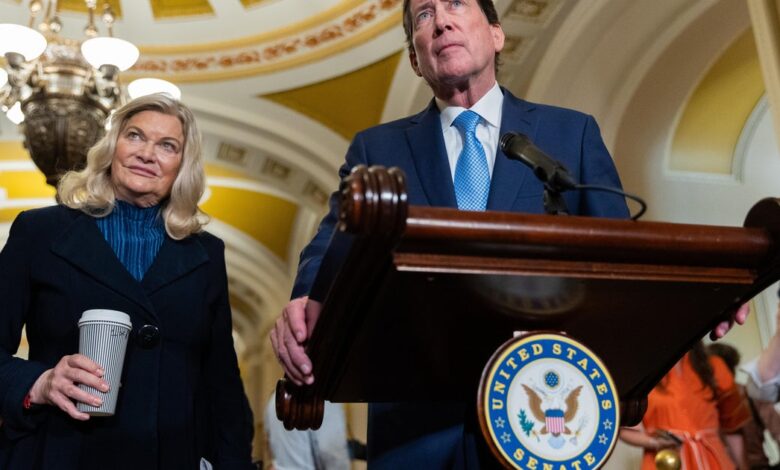Senate passes landmark crypto regulation bill with bipartisan support

The Senate recently approved a groundbreaking piece of legislation aimed at regulating the cryptocurrency market, specifically focusing on stablecoins. The bill, known as the GENIUS Act, received bipartisan support and passed with a 68 to 30 vote. This legislation seeks to establish a regulatory framework for stablecoins, which are a type of cryptocurrency tied to the value of assets like the U.S. dollar.
Republican Senator Bill Hagerty of Tennessee, the bill’s sponsor, emphasized the importance of this legislation in modernizing the payment system. He stated that the GENIUS Act would allow for faster and more cost-effective payments, revolutionizing the financial industry. The ability to settle payments almost instantaneously would benefit businesses of all sizes and individuals across the country.
The journey of the GENIUS Act through the Senate was not without challenges. Initially supported by both parties, the bill faced a setback when concerns were raised about an Abu Dhabi-backed firm utilizing stablecoins purchased from a crypto firm linked to the Trump family. This raised alarms among Democrats, who insisted on stronger provisions to prevent corruption and protect consumers, the financial system, and national security.
After weeks of bipartisan negotiations and amendments, the bill was able to regain Democratic support and pass through several procedural votes. Some Democrats expressed reservations about the bill, citing concerns that their issues had not been adequately addressed, and they were unable to propose amendments.
Despite the opposition, the bill included important changes such as requiring disclosure of stablecoin holdings over $5,000 by members of Congress and Executive Branch officials, enhanced bankruptcy protections for bank depositors, and the implementation of formal rules for monitoring suspicious transactions by the Treasury.
While the bill faced criticism from some Democrats, including Senator Elizabeth Warren, who considered it weak, supporters like Senator Kirstin Gillibrand of New York defended it as a necessary step to regulate the digital asset space. Gillibrand emphasized the urgency of implementing regulations to protect American consumers from scams and provide clarity for businesses competing in the global market.
Although some Republican senators, such as Rand Paul and Josh Hawley, voted against the legislation for differing reasons, the majority recognized the importance of establishing regulations for the cryptocurrency market. The passage of the GENIUS Act represents a significant milestone in bringing stability and oversight to the rapidly growing cryptocurrency industry.





